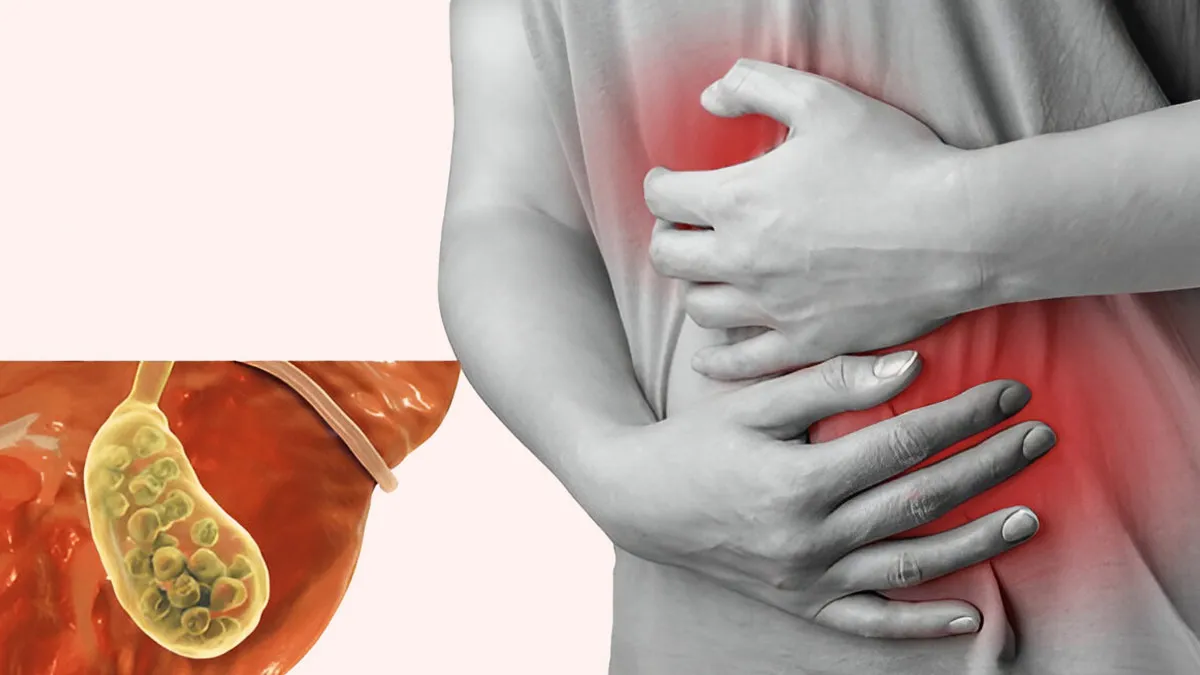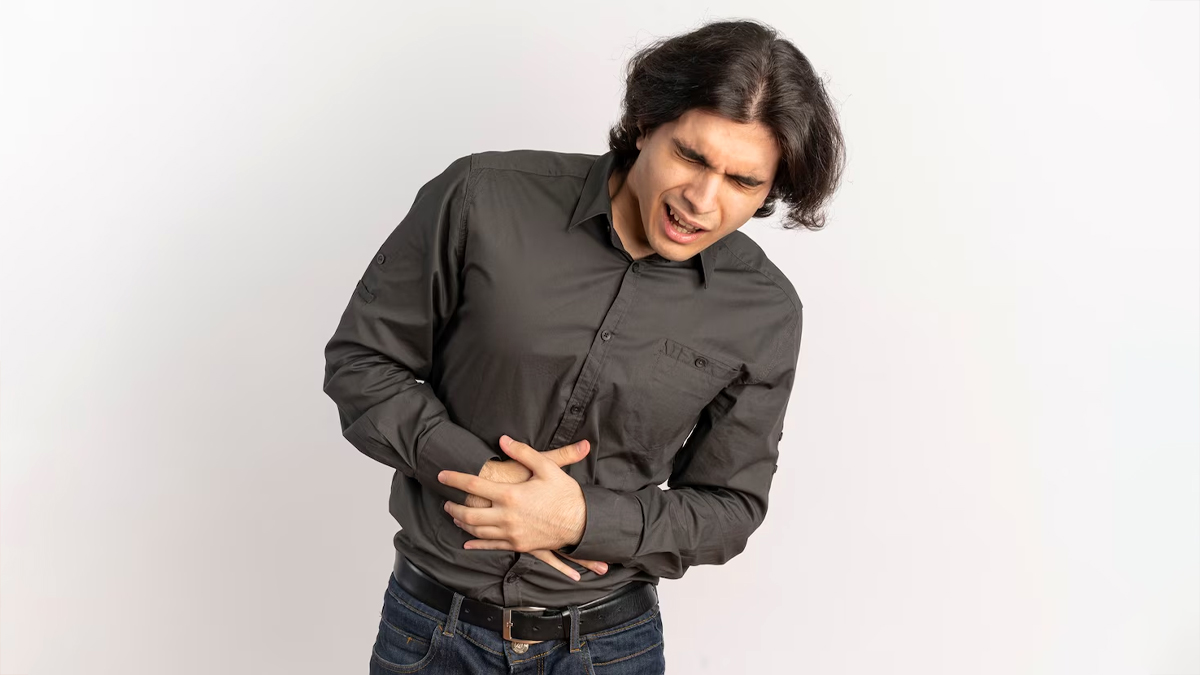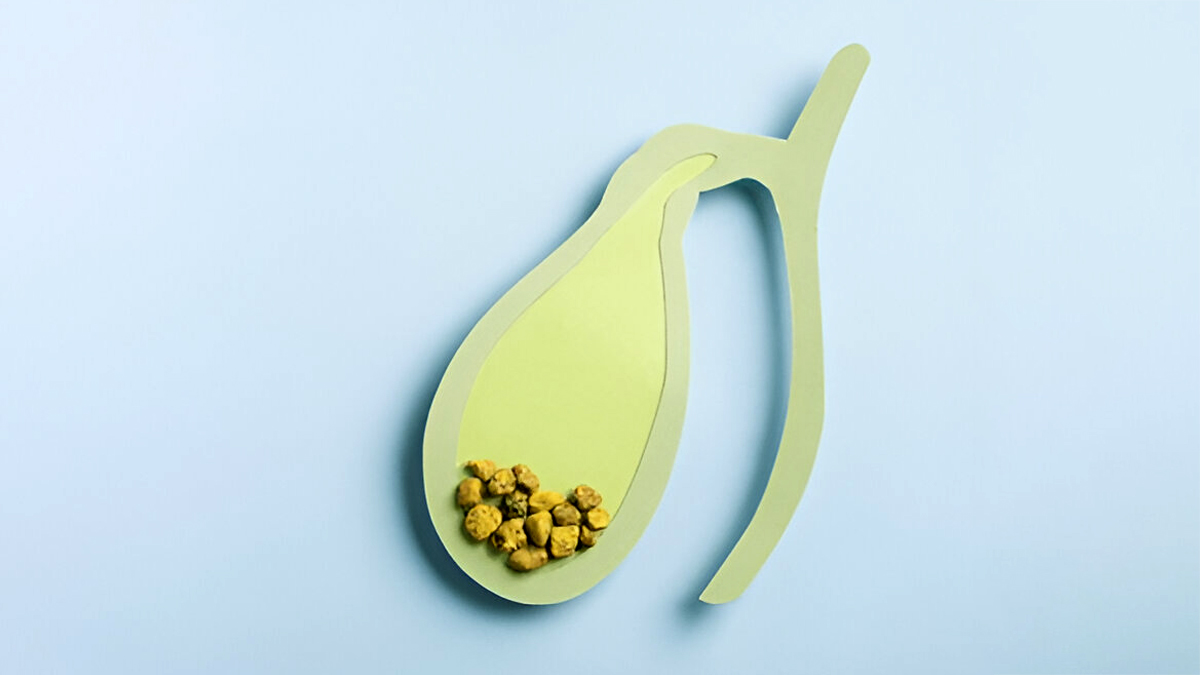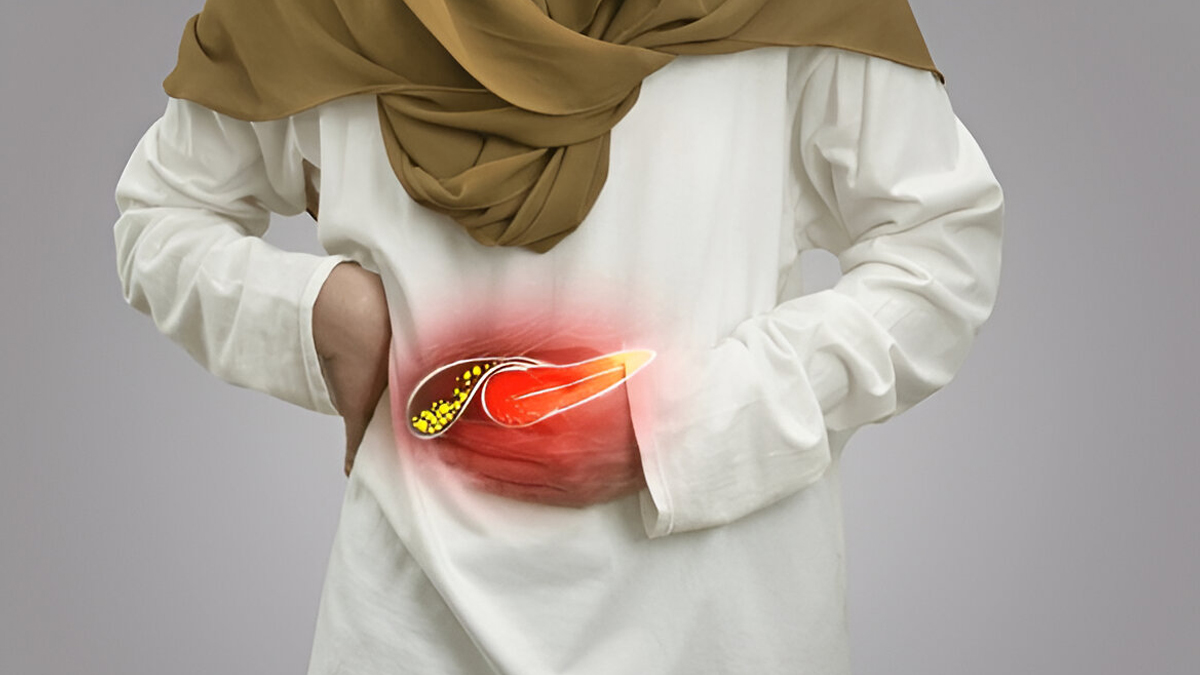
A digestive discomfort could mean anything. But did you know it could be one of the earliest indicators of gallbladder stones? Often brushed off as acidity, gas, or indigestion, this mild issue might actually be your body’s way of signalling a buildup of stones in the gallbladder. These stones can develop silently and go unnoticed for years, only making themselves known when they begin to block the flow of bile.
Table of Content:-
In this article, we’ll help you understand the early signs, how gallstones form, and when it’s time to take that persistent digestive discomfort more seriously.
What Causes Gallbladder Stones?

Medically termed as cholelithiasis, gallbladder stones may form if bile contains too much cholesterol, too much bilirubin, or not enough bile salts. Other contributing factors include poor gallbladder emptying, a diet high in fat and sugar, obesity, rapid weight loss, and genetic predisposition.
According to the National Institute of Diabetes and Digestive and Kidney Diseases (NIDDK), certain people are more likely to have gallstones than others. Risk factors include obesity and certain kinds of dieting. Speaking with the OnlyMyHealth team, Dr Manoj Gupta, Head – Liver Transplant and Surgical Gastroenterology, PSRI Hospital, Delhi, says, “High-fat and fried foods are the most common dietary triggers for gallbladder discomfort. Meals rich in saturated fats—like red meats, butter, full-fat dairy, and processed snacks—can stimulate the gallbladder to contract, which may cause pain if gallstones are present. Rapid weight loss or prolonged fasting can also increase the risk of gallstone formation, as they disrupt the normal emptying of the gallbladder.”
“On the other hand, diets low in fibre and high in refined carbohydrates (white bread, sugary foods) can also contribute to gallstone development. A balanced diet with moderate fat, high fibre, and sufficient hydration is typically advised,” he adds.
Additionally, excess oestrogen from pregnancy, Hormone Replacement Therapy, or birth control pills also tends to increase cholesterol levels in bile and decrease gallbladder movement, both of which can lead to gallstones, according to Johns Hopkins Medicine.
Early Signs Of Gallbladder Stones: Is Digestive Discomfort One Of Them?

Dr Gupta shares that the earliest signs of gallbladder stones—also known as gallstones—often begin subtly and may resemble common digestive complaints. These include:
- Bloating
- Indigestion
- Nausea
- A feeling of fullness after eating, especially after consuming fatty meals
- Mild discomfort in the upper right side of the abdomen or in the centre, just below the ribcage
“These early symptoms are easy to overlook or confuse with routine digestive issues, which is why gallstones can remain undiagnosed for a long time,” says Dr Gupta, adding that as the stones grow or block the bile ducts, symptoms may become more specific and severe.
When To Check For Gallstones
While gallstone symptoms can often overlap with other benign digestive problems, one is likely to ignore it for weeks and months, delaying diagnosis and treatment. Therefore, Dr Gupta advises, “If someone is experiencing repeated episodes of indigestion, upper abdominal pain after meals (especially after fatty foods), unexplained nausea, or discomfort that radiates to the right shoulder or back, they should consult a physician. These could be early signs of gallstones.”
“Sudden, severe abdominal pain—especially when accompanied by fever, vomiting, or jaundice—warrants immediate medical attention, as this may indicate a blocked bile duct or inflamed gallbladder,” he adds, sharing further that an abdominal ultrasound is the most common and non-invasive way to diagnose gallstones.
Can Gallbladder Stones Resolve Without Surgery?

In some cases, gallstones may resolve on their own without surgery. This is if gallstones are small, asymptomatic, or discovered incidentally. Doctors may recommend a ‘watchful waiting approach, monitoring the condition over time. Dr Gupta says, “Medications such as ursodeoxycholic acid can sometimes help dissolve small cholesterol-based stones, though this treatment may take months or years and is not effective for all types of stones.” Additionally, lifestyle changes, such as maintaining a healthy weight, eating a balanced diet, and avoiding rapid weight loss, can also help prevent progression.
However, it is advised to seek medical guidance.
Conclusion
While it’s easy to dismiss bloating or indigestion as nothing serious, these mild discomforts could be your body’s early warning signs of gallbladder stones. Many people live with gallstones for years without realising it until the pain becomes too much to ignore. The upside is that early detection often means simpler, non-surgical solutions and better outcomes. So if you're noticing recurring digestive issues, especially after rich or fatty meals, don’t just endure it; instead, listen to your body and speak to a doctor.
Also watch this video
Read Next
The Cardiac Impact Of Autoimmune Diseases: What Lupus, RA, And Psoriasis Can Do To The Heart
How we keep this article up to date:
We work with experts and keep a close eye on the latest in health and wellness. Whenever there is a new research or helpful information, we update our articles with accurate and useful advice.
Current Version